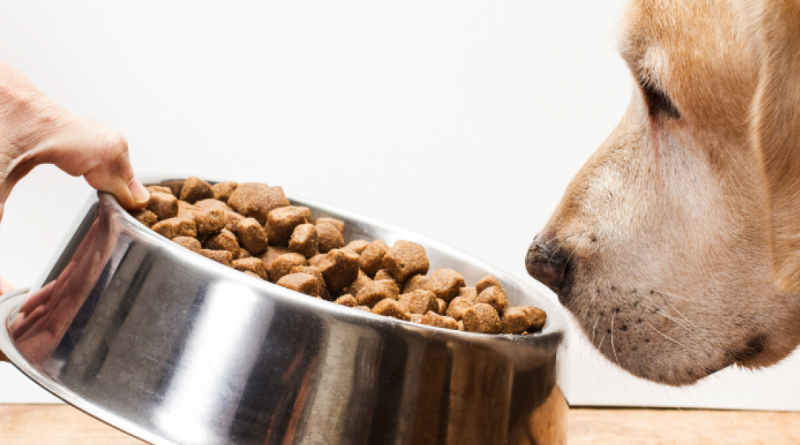Why is my dog not eating? Causes and solutions
Do your dogs refuse to eat their food, even though they used to consume it as soon as it was placed in the bowl? There are lots of reasons why a dog refuses to eat. A dog’s stop eating might range from misbehavior to significant health difficulties, but it is necessary to take action.
Dogs with a decreased appetite (hypoxia) or a loss of appetite (anorexia) can upset their owners and often signify a medical issue. Anorexia for more than 24 hours must not be overlooked, as it is often a symptom that something else is wrong.
Here are some facts on why your dog isn’t eating to help you figure out what’s going on and what you should do to help.
Possible reasons why dogs refuse to eat
There can be several possible reasons why a dog won’t eat, but they generally fall into three major categories:
- Medical reason
- Behavioural reason
- Food Issue
Possible medical reason
Anorexia or hypoxia in dogs can be caused by a variety of medical conditions, including anything that causes discomfort, nausea, lethargy, or stress:
- Allergies
- Depression
- Infection
- Pain
- Problems with teeth, gums, or tongue
- Upset stomach
- Poisoning
- Tumors
- Autoimmune diseases
- neurological diseases
- internal organs problems (heart, liver, kidneys, lungs)
- Parasites
- Recent vaccination
These are just a glimpse of the medical conditions that might cause a decrease in appetite in dogs; there are many others.
Behavioral reason
Separation anxiety, a dog who is accustomed to receiving a lot of goodies and table scraps, a dog that prefers to eat alone or only when there is someone else in the room, or a dog who is accustomed to being hand-fed are all behavioral causes.
Changes in a dog’s habit or environment might cause anxiety, such as new people or dogs in the house, travel, or loud noises like construction, storms, or fireworks. Even something as basic as changing the timing or location of a meal can generate stress in more sensitive dogs, causing them to eat less.
A recent move or travel, the absence of a family member or another pet, recent stress, weather changes, or a change in the feeding schedule are all examples of environmental changes.
When my dog got a new food bowl, she refused to eat for two and a half days. Maybe it’s something to do with dachshunds. The point is that you should consider any changes in your surroundings or your behavior.
If the problem is stress or worry, dogs will usually start eating after a day or two once they adjust to the new situation. Some dogs may require behavioral adjustment or medicinal treatment if stress and anxiety are regular.
Food issue
Dogs aren’t known for being fussy eaters, but they will occasionally reject food that doesn’t meet their standards.
If your dog refuses to eat, there are a few food issues to explore. First and foremost, make sure the food hasn’t gone bad. If it isn’t, check whether you just introduced new food with a different flavor or fragrance than the old meal.
It can take a few efforts to figure out which dog food your dog prefers, but if your dog seems to be bored of eating food after food, it could be due to too many treats or human food, or they could have a medical issue.
When switching from home-cooked meals or wet dog food to kibble, dogs frequently refuse to eat. Switching foods abruptly might cause stomach trouble (lack of appetite, vomiting, and diarrhea) and be unhelpful. It’s rare for a dog to be hungry for several days just because they’re fussy, so if this happens, consult your veterinarian to rule out any underlying medical concerns.
Solutions For Loss of Appetite in Dogs
Consult a veterinarian if you have any medical concerns. Otherwise, things can quickly deteriorate.
Fixing Food-Related Appetite Loss in Dogs
Some solutions are relatively straightforward regarding food-related problems of lack of appetite in dogs.
Fixing Food-Related Appetite Loss in Dogs
When it comes to food-related problems of lack of appetite in dogs, some solutions are fairly simple.
Treating Environmental And Behavioural Loss Of Appetite In Dogs
When your dog refuses to eat for behavioral or environmental reasons, the process can be more stressful and time-consuming. You may need to take the advice of a pet behavior expert or a trainer on occasion.
Here are some general tips for persuading your dog to eat on a regular basis:
- Ensure that your pet receives sufficient exercise and attention.
- Don’t punish your dog for refusing to eat; instead, be patient and sympathetic.
- Treats should only be given as a reward.
- It would be best if you did not give table leftovers.
Bonus Tips: If your dog refuses to eat, keep an eye on his water intake. When your dog refuses to eat, keep an eye on his water intake.
Dogs should not pass more than a day without water. Your dog should drink at least one ounce of water per pound of body weight daily to avoid dehydration. If your dog isn’t drinking, you should take him to the vet as soon as possible since dehydration might set in. There can be a lot of other complications due to dehydration.
Conclusion
In this article, We tried to cover many probable causes. It’s impossible to eliminate the possibility of your dog losing its appetite. Still, there are certain things you can do to reduce the risk, such as keeping objects out of reach that could create an internal obstruction if eaten.


